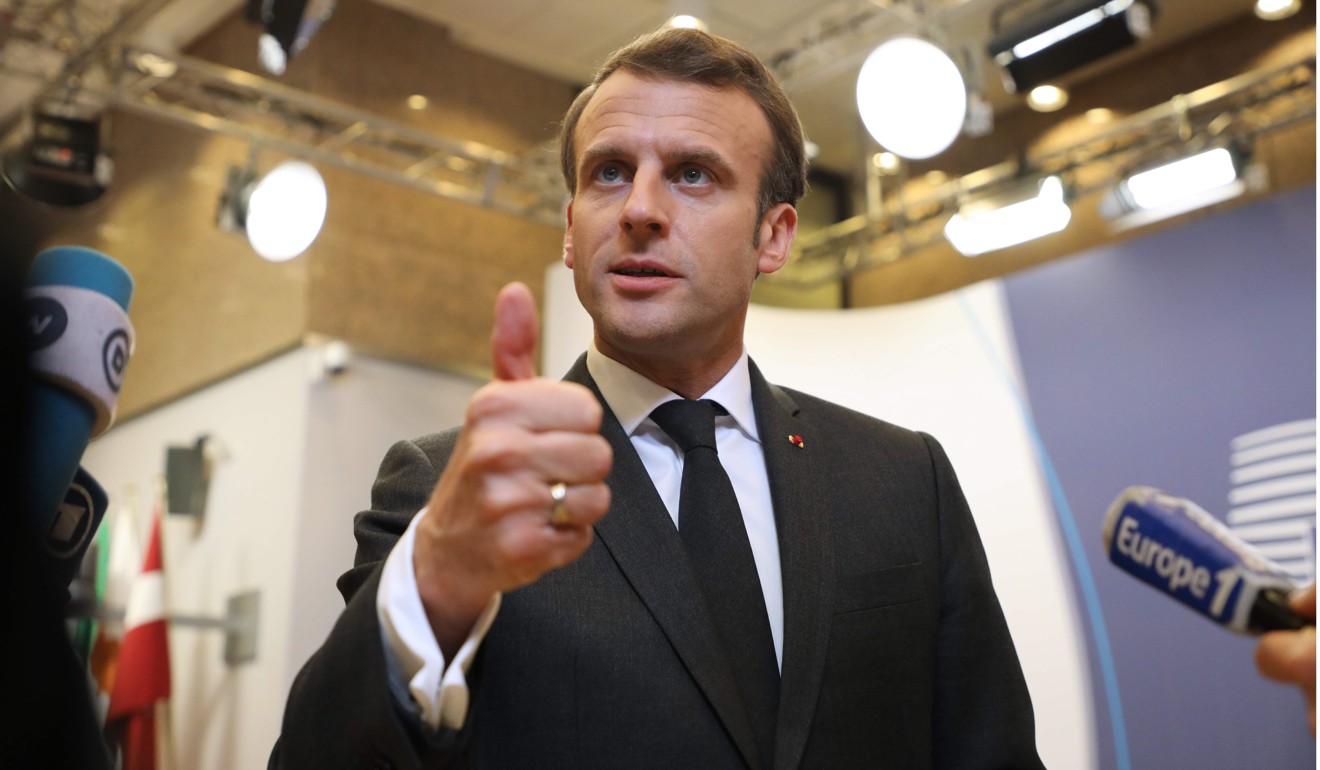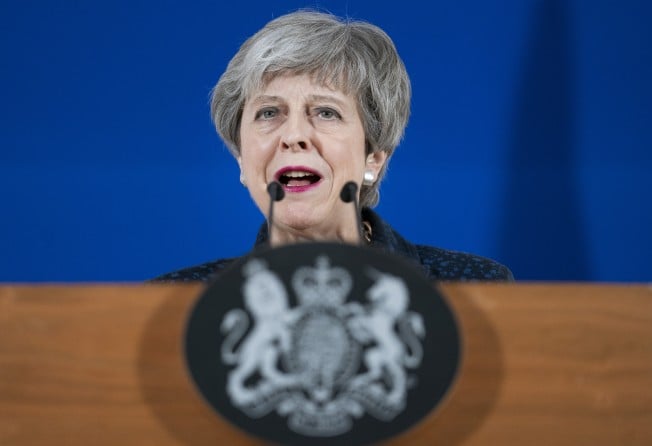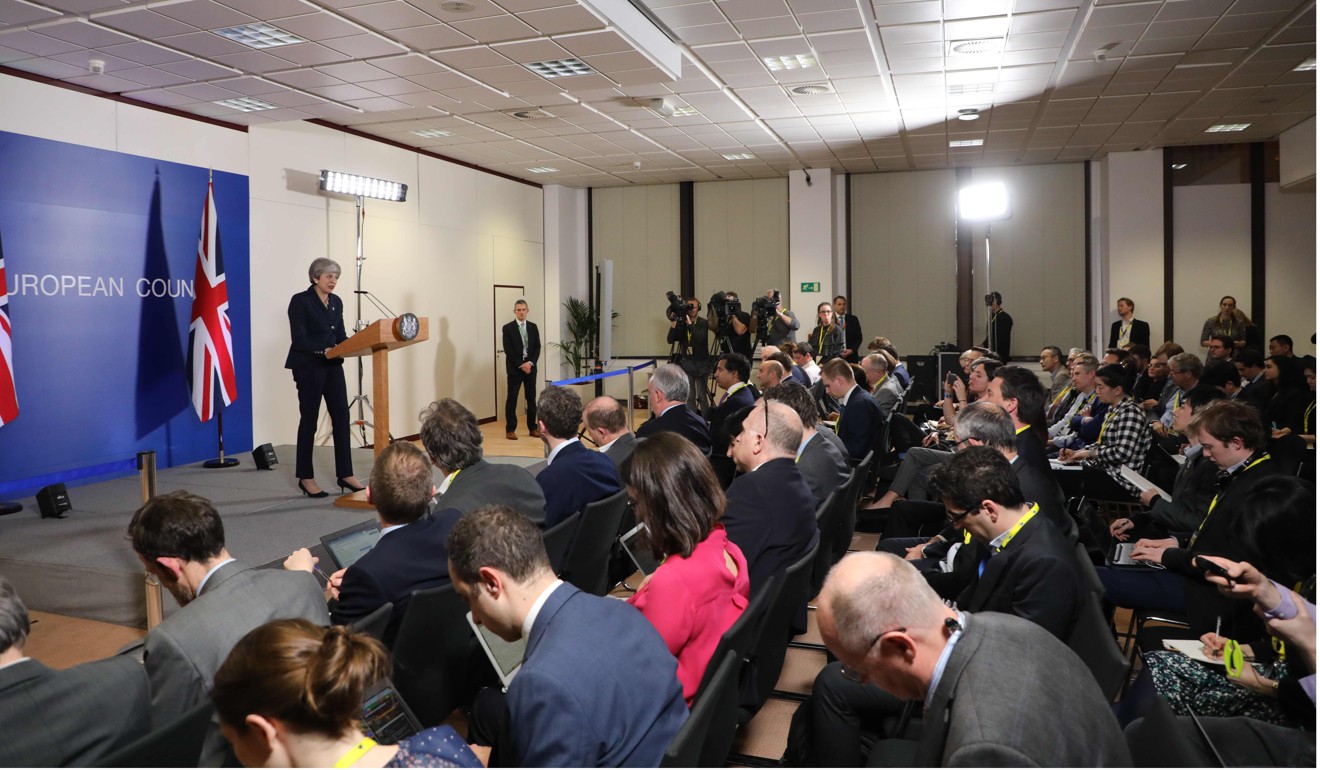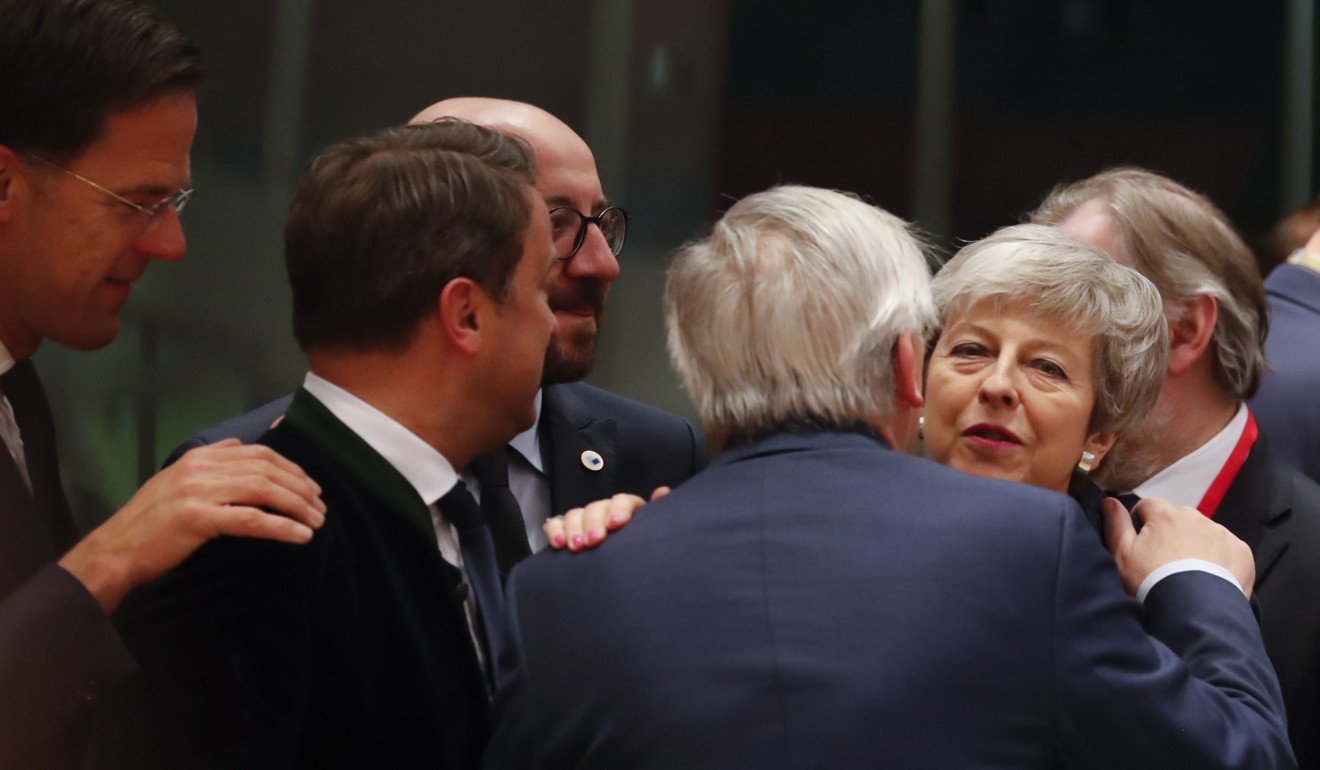
EU agrees to delay Brexit until May 22 if British MPs back Prime Minister Theresa May’s deal
- If lawmakers do not ratify May’s text, Britain will have until April 12 to decide whether it will take part in the European Parliament election

Worn down by three years of indecision in London, European Union leaders on Thursday offered the UK more time to ease itself out of the bloc, delaying by several weeks – but not eliminating – the possibility of a chaotic British exit.
After a meeting that stretched through the afternoon and over dinner, the bloc said Britain could postpone its March 29 departure to May 22 – if the UK parliament approves Prime Minister Theresa May’s divorce deal with the bloc next week.

If the twice-rejected deal is thrown out again, the bloc says Britain has until April 12 to “indicate a way forward”.
“Now it is finally up to the British political system,” French President Emmanuel Macron said, adding that any final decision must come before the May 23-26 European Parliament election.
May – who has spent almost three years telling Britons they will leave the EU on March 29, 2019 – put a positive spin on the delay, saying it underlines “the importance of the House of Commons passing a Brexit deal next week so that we can bring an end to the uncertainty and leave in a smooth and orderly manner”.
The late-night offer eased some uncertainty among leaders at an EU summit in Brussels, which was exceeded only by the anxiety felt by politicians, businesses and people in Britain. The British military has even set up a command post in a bunker under the defence ministry in London to help coordinate “no-deal” planning.
The House of Commons is split, both among and within its political parties, over whether and how to leave the EU. It has twice rejected the deal May brokered with the bloc’s leaders late last year.
This week, May finally acknowledged the Brexit gridlock and asked the EU to delay Britain’s departure until June 30, to create time to win parliamentary approval for her deal in a third attempt and then pass the legislation necessary for a smooth departure.
But opposition to May’s agreement among British politicians appeared to be hardening, rather than softening, after she blamed parliament for the Brexit impasse.
May struck a conciliatory note at a late-night Brussels news conference.
“I know MPs on all sides of the debate have passionate views, and I respect those different positions.” she said. “Last night I expressed my frustration. I know that MPs are frustrated too. They have difficult jobs to do.”

But May also refused to change course, calling on lawmakers to back her agreement and refusing to rule out a no-deal exit if they did not back her.
May said that if the deal falls, by April 12, “we would either leave with no deal, or put forward an alternative plan” that involved taking part in EU Parliament elections.
“I believe strongly that it would be wrong to ask people in the UK to participate in these elections three years after voting to leave the EU,” she said.
Some businesses and economists say a no-deal Brexit would cause huge disruptions and billions in costs to the economies of Britain and the EU.
Worry about a chaotic departure has been rising among EU leaders, who fear May no longer has the clout in parliament to get her way.
“Nobody wants no-deal here,” Irish Prime Minister Leo Varadkar told reporters.
German Chancellor Angela Merkel vowed to work “until the last hour” to try to ensure Britain does not leave without an agreement, even though her government enacted emergency measures to deal with it.

May plans to make a third attempt to get her deal through parliament next week. But many pro-Brexit legislators still oppose it, saying it does not deliver the clean break they want.
“I never got frustrated with Theresa May. I have the highest respect for her,” said Dutch Prime Minister Mark Rutte. “Her tenacity is enormous. But she is working in an extremely difficult situation.
“It’s not her mistake that we are where we are – it’s because too many people have so far played party politics on this issue.”